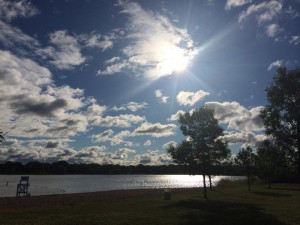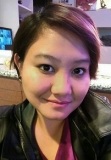
Existing in ruptures, I suppose that is the consequences of living life. In 1993, my family went aboard an airplane that would bring us to the United States. It was not an easy flight, and as I know now, nothing about this life is ever easy. The dizzying pain of the shuttering noise overwhelmed me, leaving pungent ailments, vomit all over my own shirt. I was from a refugee camp, which my tender memories leave only with it, a vision of sipping chocolate aid milk.
In this queer refugee life, I am always imagining the sweet escape, thinking of its landscapes as close enough, to enjoy its everlasting moments. And I linger in these fantasies that wretched my birth and travels to America. Imagining back on my queer life, the blockades of anguish, mixed with sweetness always had a fervent flavor. At the earliest onset, my feelings of queerness, of loving and desiring, were nothing but strange, familiar, and true. And yet, I myself could not fathom its sweetness, which I mustered as anguish. I must perpetually compete with these recurring cleavages in this realm of life. These continual exigencies are what makes life meaningful, interesting at the least, I suppose.

“I realize now,
Those moments of eery chaos,
Will always thwart my memories,
I realize now,
That illusionary specter of joy,
Were my only hopes of life,
I realize now,
Those discolored ambiences of life,
Were the containment of all which is never to be had,
I realize now,
Those remnants of glimmer,
Was and can never be consumed, and,
I realize now,
The unsettled visions that outline the shallow spirals,
Can liberate me from my desperation,
I realize now,
The protruding anger of my soul,
Was always the symbol of my emancipated queer life,
I realize now,
That moment of desolate altercation,
Is it not the emblem of my refugee life,
I realize now,
Never to let go of the blemishes of my imagination,
It is to be happily queer in a world of deformed chaos.”
That moment is funny to me now. It is as clear as that window that shows the first signs of storm clouds. And yet, that moment exists only as a remnant of memory, driving down that dark, suicidal road. That moment of desperation, I realized, that despair is not death, but the languishing hunger to master life’s most miserable grandeurs. I suppose now that the drive, the run, the escape, the realization, the return, all were leading to this moment in my gay, my queer, my Hmong, my refugee, my bizarre, my funny, my beautiful life.
Ruptures in the human heart, physically and emotionally, are inevitable consequences of living. This discursivity in my happiness will settle itself. Living an unsettled life, of queerness, and embracing all of its exigencies, its messiness, of loving that man, of hating myself, of loving myself, I like the view from this focal point. For now, I will allow the intermittent episodes of my life to encapsulate itself into an everlasting nothingness, to be sorted out in other spaces and times unknowable.
Kong Pheng Pha is a writer from Minneapolis-Saint Paul, Minnesota.
Celebrate June PRIDE Month by contributing your narrative to be part of AAPI LGBTQ PRIDE Narrative Series. If you identify as AAPI LGBTQ and want to contribute your narrative or have questions, please email Linda for more information – linda@mwsmovement.com

 James Her is from Sacramento, California. He is the first in his family to obtain a professional degree. He received his undergraduate degree in 2014 from Humboldt State University in Sociology, and Criminology and Justice Studies. Currently he is a Master of Social Work (MSW) candidate at the University of Washington. He is in the process of completing his master’s thesis on Mental Health Within the Hmong American LGBTQ Community. He is currently interning at Asian Referral Counseling Services (ACRS) as a behavioral health therapist. He is also a research assistant for the Indigenous Wellness Research Institute (IWRI) and an active member of South East Asian Education Coalition (SEAeD). Upon completing his MSW he would like to go into direct practice and hope to pursue his PhD in the near future.
James Her is from Sacramento, California. He is the first in his family to obtain a professional degree. He received his undergraduate degree in 2014 from Humboldt State University in Sociology, and Criminology and Justice Studies. Currently he is a Master of Social Work (MSW) candidate at the University of Washington. He is in the process of completing his master’s thesis on Mental Health Within the Hmong American LGBTQ Community. He is currently interning at Asian Referral Counseling Services (ACRS) as a behavioral health therapist. He is also a research assistant for the Indigenous Wellness Research Institute (IWRI) and an active member of South East Asian Education Coalition (SEAeD). Upon completing his MSW he would like to go into direct practice and hope to pursue his PhD in the near future.

 Dee is a 26 year old workaholic living in NoCal. An organizer for many causes such as MidWest Solidarity Movement (MWSM), Building Our Future (BOF), Asian Pacific Islander Queer Sacramento (APIQSC), and Sacramento Hmong LGBTQ.
Dee is a 26 year old workaholic living in NoCal. An organizer for many causes such as MidWest Solidarity Movement (MWSM), Building Our Future (BOF), Asian Pacific Islander Queer Sacramento (APIQSC), and Sacramento Hmong LGBTQ.








